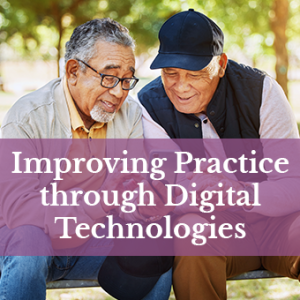
Digital music engagement for healthy ageing: Theoretical perspectives and application

Presenter(s):
Aija Ozola, Kristīne Mārtinsone; Sabīne Krustiņa, Riga Stradins University, Latvia
Abstract
Introduction. The global trend of population ageing highlights an urgent need to support the emotional well-being of older adults. With the growing integration of digital technologies into their daily lives, new opportunities are emerging to enhance well-being through accessible and engaging platforms. Music is increasingly recognised as a powerful medium that supports multiple dimensions of healthy ageing, including cognitive function, emotional resilience, and physical health. While music therapy has demonstrated significant benefits, the specific factors that enable older adults to engage effectively with music in digital environments remain insufficiently understood. This study aimed to identify and organise key determinants influencing digital music engagement among older adults.
Method. A three-phase mixed-methods research design was employed. Phase one involved qualitative interviews with older adults to explore their music-related motivations, preferences, and usage patterns. In phase two, music therapists were interviewed to provide expert insights and assess the feasibility of adapting music engagement to digital formats. Findings from these phases informed the development of an online survey, which was implemented in phase three to assess the validity and relevance of proposed determinants among a sample of music therapists.
Results. A total of 74 potential determinants of digital music engagement were identified, of which 70 met the inclusion threshold (Content Validity Index, CVI ≥ 0.7). These determinants were grouped into ten thematic categories: music preferences, personalised selection, genre affinity, purposes of engagement, types of musical activities, music use beyond structured interventions, support for participation, social interaction, digital infrastructure, and perceived risks or limitations.
Conclusions. The proposed framework provides a theory-informed foundation for designing digital music interventions tailored to older adults. It has practical relevance across arts therapies and psychological support settings employing creative methods. Moreover, it offers a valuable tool for developers of digital health technologies aimed at promoting healthy ageing. Future research with international expert samples is recommended to strengthen the framework’s generalisability and cultural adaptability.
Keywords: digital technology, healthy ageing, music engagement, music therapy, older adults
Bio(s):
Aija Ozola is a PhD student in psychology and teaching assistant in Department of Health Psychology and Paedagogy, at Riga Stradins University, Latvia. Her research interests focus on digital interventions in health psychology and music therapy, as well as nature as a well-being resource across different age groups.
Sabīne Krustiņa, Mg. sc. sal., is a music therapist recently graduated from Riga Stradins University. Her research interests focus on the use of music therapy with older adults, particularly exploring digital music engagement in daily life and therapeutic contexts.
Kristīne Mārtinsone is professor and head of Department of Health Psychology and Paedagogy at Riga Stradins University, Latvia. She is a scientific expert of the Latvian Council of Science in Psychology, and Health and Sports Sciences, an author, co-author, compiler, scientific editor of more than 200 publications as well as more than 50 books (monographs and collections of articles). Conceptualising a wide range of topics in health psychology and other disciplines, she searches for historical, social and cultural interrelations and analyses the dimensions of different phenomena including well-being, self-care, resilience, etc. She is also one of the lead experts of Latvia in research methodology.
